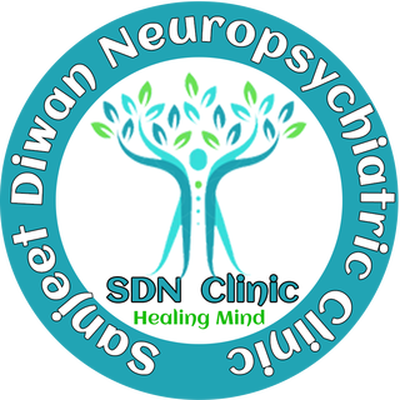-
 Find in Members
Find in Members Find in Videos
Find in Videos Find in Channels
Find in Channels
This website uses cookies to ensure you get the best experience on our website.
To learn more about our privacy policy Click herePrivacy Preference
- Tags - #depression
-
- Last updated October 17, 2024 0 comments, 138 views, 0 likes
- Bhopal, Madhya Pradesh, India - Get Directions
More from Dr. Sanjeet Diwan
More in Politics
Related Blogs
How to Recognize and Deal with High-Functioning Depression
Body
High-functioning depression is a form of depression that often goes unnoticed because those affected appear to function well in their daily lives. They may excel at work, maintain relationships, and seem outwardly fine. However, beneath the surface, they struggle with persistent feelings of sadness, hopelessness, and fatigue. Recognizing and addressing this type of depression is crucial for mental well-being.
How to Recognize High-Functioning Depression
1) Constant Fatigue: One of the key signs of high-functioning depression is constant exhaustion. Individuals may feel drained even after adequate rest. This fatigue can make daily tasks feel overwhelming, but they push through because of their responsibilities.
2) Persistent Sadness or Emptiness: Those with high-functioning depression often experience a lingering sense of sadness or emotional numbness. They may not cry or show outward signs of distress, but internally, they feel disconnected and unmotivated.
3) Difficulty Concentrating: Despite being productive, people with high-functioning depression may have trouble focusing. Simple tasks take longer, and they may struggle with decision-making due to constant self-doubt.
4) Loss of Interest in Enjoyable Activities: While they may still participate in hobbies or social activities, the enjoyment is often missing. Activities that once brought happiness now feel like burdens.
5) Self-Criticism: People with high-functioning depression tend to be overly critical of themselves. Despite their accomplishments, they feel inadequate and constantly worry about failing.
How to Deal with High-Functioning Depression
If you or someone you know exhibits these signs, it's essential to seek help. A psychiatrist in Bhopal can provide professional support to manage high-functioning depression. Here are a few strategies to cope with it:
1) Therapy: Cognitive-behavioral therapy (CBT) is an effective treatment option. It helps individuals identify negative thought patterns and replace them with positive ones. Talking to a psychiatrist in Bhopal can make a significant difference in how you perceive and manage your emotions.
2) Medication: Antidepressants may be prescribed to regulate mood and alleviate symptoms. A psychiatrist can recommend the right medication based on individual needs.
3) Lifestyle Changes: Incorporating regular exercise, a healthy diet, and mindfulness practices can help improve mental health. These activities release endorphins, which naturally boost mood.
4) Social Support: Reach out to friends and family for emotional support. Isolation can worsen depression, so maintaining connections is crucial.
High-functioning depression, though hidden, can be just as damaging as more severe forms. If you're experiencing any symptoms, consult a psychiatrist in Bhopal to get the help you need and start your journey toward recovery.
Photos
Map
-
Locations on MyWorldGo
Location Information
- Location: Bhopal, Madhya Pradesh, India - Get Directions
- Formatted Address: Bhopal, Madhya Pradesh, India
- Street Address: Bhopal
- City: Bhopal Division
- State: Madhya Pradesh
- Country: India











Comments